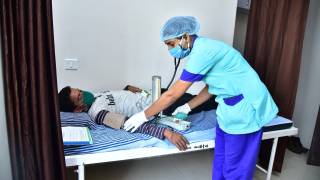UK Reports COVID-19 Vaccine Related Fatalities and Heart Health Risks

The United Kingdom Medicines & Healthcare Regulatory Agency (MHRA) announced on July 22, 2021, it had received additional Yellow Card reports of suspected adverse drug reactions (ADR) related to COVID-19 vaccinations in which the patient died shortly after vaccination.
Three COVID-19 vaccines, Pfizer-BioNTech, COVID-19 Vaccine AstraZeneca, and COVID-19 Vaccine Moderna, are currently being used in the UK.
Data from the UK Public Health agencies indicate that at least 46 million people have received their first vaccination in the UK by July 14th, with 35 million second doses administered.
As of July 14, 2021, the MHRA has received 460 UK reports of suspected ADRs to the Pfizer-BioNTech (Comirnaty) vaccine, in which the patient died shortly after vaccination.
Additionally, 999 reports for the COVID-19 Vaccine AstraZeneca (Vaxzevria) and 7 for the COVID-19 Vaccine Moderna (SpikeVax) were reported.
‘The majority of these Yellow Card reports in the UK were in older people, or people with underlying illnesses’ wrote the MHRA. ‘Usage of the vaccines has increased throughout campaigns. As such, so has reported fatal events with a temporal association with vaccination.’
‘However, this does not indicate a link between vaccination and the fatalities reported.’
‘Review of individual reports and patterns of reporting does not suggest the vaccines played a role in these deaths.’
'As with any vaccine, the COVID-19 vaccines will cause side effects in some people. The total number and the nature of Yellow Cards reported so far is not unusual for a new vaccine for which members of the public and healthcare professionals are encouraged to report any suspected adverse reaction' says the MHRA.
In addition, the UK’s MHRA had received ADR related to heart inflammation cases as of July 14, 2021.
The MHRA received 112 reports of myocarditis and 103 reports of pericarditis following Pfizer - BioNTech (Comirnaty) vaccination and one report each of viral pericarditis, infective pericarditis, and Streptococcal endocarditis.
For the COVID-19 Vaccine AstraZeneca (Vaxzevria), 76 reports of myocarditis and 126 reports of pericarditis, and four reports for viral pericarditis have been reported endocarditis, two reports for endocarditis bacterial, and one report each for viral myocarditis and infectious myocarditis.
And there have been 17 reports of myocarditis, 20 reports of pericarditis, and one report of endocarditis following the use of COVID-19 Vaccine Moderna (SpikeVax) up to the same date.
The UK says, ‘Myocarditis and pericarditis happen very rarely in the general population, and it is estimated that in the UK, there are about six new cases of myocarditis per 100,000 patients per year and about ten new cases of pericarditis per 100,000 patients per year.’
On July 9, 2021, the European Medicines Agency announced its safety committee had concluded that myocarditis and pericarditis could occur in very rare cases following vaccination with the COVID-19 vaccines Comirnaty and Spikevax.'
The MHRA report continued to say, 'Vaccines are the best way to protect people from COVID-19 and have already saved thousands of lives. Everyone should continue to get their vaccination when asked to do so unless specifically advised otherwise.'
The MHRA operates the Yellow Card scheme on behalf of the Commission on Human Medicines. The scheme collects and monitors suspected safety concerns or incidents involving vaccines, medicines, medical devices, and e-cigarettes.
The UK’s Medicines and Healthcare products Regulatory Agency regulates medicines, medical devices, and blood components for transfusion in the UK. It is an executive agency sponsored by the Department of Health and Social Care.
Note: The UK’s Joint Committee on Vaccination and Immunisation (JCVI) confirmed on July 19, 2021, the JCVI advises that children at increased risk of serious COVID-19 disease are offered the Pfizer-BioNTech (Comirnaty) vaccine. This includes children aged 12 to 15 with severe neurodisabilities, Down’s syndrome, immunosuppression, and multiple or severe learning disabilities.
The JCVI also recommends that children and young people aged 12 to 17 who live with an immunosuppressed person should be offered the vaccine. This is to indirectly protect their immunosuppressed household contacts, who are at higher risk of serious disease from COVID-19 and may not generate a full immune response to vaccination. However, the JCVI is not currently advising routine vaccination of children outside these groups, based on the current evidence.
Our Trust Standards: Medical Advisory Committee























